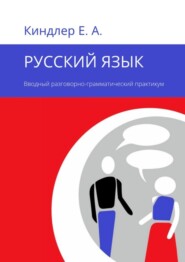скачать книгу бесплатно
Родителей
Папы
Мамы
Детей
Сына (Брата)
Дочери (Сестры)
Внуков
Внука
Внучки
Родственников
Мужа
Жены
Дяди
Тёти
Племянника
Племянницы
Двоюродного брата
Двоюродной сестры
Упражнение 2. Tell about your family using the table.
In the Russian language there are possessive pronouns. Possessive pronouns are a group of words indicating a sign of an object by its affiliation (something to someone) and answering questions whose (чей). They can be masculine, feminine, neuter or plural. The gender and number of possessive pronouns is determined by the noun in front of which they stand. For example: мой папа (m), моя мама (f), моё упражнение (n), мои родители (pl).
Упражнение 3. Indicate the possessive pronoun according to the gender and number of the noun.
For example,
мой, твой, его, её, наш, ваш папа (m)
моя, твоя, его, её, наша, ваша мама (f)
Члены семьи – Family members
Учёба – Study
Еда и напитки – Food and drink
Профессия (profession)
Compare these words. You can see they’re alike. There are many borrowed and international words in Russian. English words with the ending «sion» are used in Russian with the ending «сия».
Nouns with the ending «tion» have the endings «ция».
Of course, the meanings of such words in English and in Russian are not always identical.
Complection – color of skin.
Комплекция – body type.
Nevertheless, you already know several tens of thousands of such words, applying this scheme.
Кто ты (Вы, он, она) по профессии?
Я учитель (по профессии).
For some professions one word is used in Russian. For others different words are used depending on the gender.
!Учитель is used for the teacher at school, преподаватель is used for the teacher at university.
Упражнение 4. Make dialogs like these
– Кто твои родители по профессии?
– Мой папа по профессии инженер, а мама учительница
– У тебя есть братья и сёстры?
– У меня есть только брат.
– А кто он по профессии?
– Мой брат бизнесмен.
!Этот/ тот – this/that
Упражнение 6. Indicate the demonstrative pronouns according to the gender and number of the noun.
For example, этот, тот (папа)
эта, та (мама)
Урок 4. Глаголы несовершенного вида настоящего времени. Особые случаи глаголов
Lesson 4. Imperfective verbs of the present tense. Special cases of verbs
All verbs in Russian have an initial form with standard endings. Most verbs have an ending – ть. Less often – ти and very rarely – чь. In Russian – like in many other languages – a verb changes its ending for persons.
Дела -ть (to do)
я дела – ю
мы дела – ем
ты дела – ешь
вы (Вы) дела – ете
он/она/оно дела – ет
они дела -ют
You can see. To conjugate a verb, you need to replace the ending ть (ти, чь) with the others. There are 6 endings in the present tense. There are two groups of conjugations of verbs:
First conjugation – verbs ending with ать, ять (читать, объяснять)
Second conjugation – verbs ending with еть, ить (смотреть, учить)
This is a general rule. There are exceptions and special cases that you must just remember. Let’s start with the first group of verbs It is important to mention is that after 8 letters (к, г, ш, ж, щ, ч, х, ц) we don’t write the endings: -ю, -ют. We use the endings -у, -ут instead.
Понимать
Гулять
Упражнение 1. Conjugate the verbs of the first conjugated group in the pattern
Second conjugation verbs (еть, ить, ти)
After 8 letters (к, г, ш, ж, щ, ч, х, ц) we don’t write the endings: -ю/ят. We use the endings -у, -ат instead.
Говорить – speak
Смотреть – look
Учить – learn (what) or teach (whom)
In Russian there are affirmative (ты говоришь), interrogative (ты говоришь?) аnd negative sentences (ты не говоришь).
A direct question is asked only with the help of intonation, the word order does not change, and auxiliary verbs are not used. If there is a question word, it is usually at the beginning of the sentence. Negation is formed through the addition of particles not before the verb.
!Делаешь? – In Russian, there is a second way of asking questions with verbs: Делаешь ли ты?
The verb comes first, after it the particle ли, and then the pronoun or noun. This method is similar to the form of an indirect question in English. Like: She asked if he makes – Делает ли он?
Упражнение 2. Conjugate the verbs of the second conjugated group in the pattern.
говорить, смотреть, учить, помнить
Special cases of verbs:
First conjugation verbs
– авать/овать (they are replaced with the same endings)
Давать, рисовать, фотографировать, использовать, узнавать, подавать, сдавать, вставать, преподавать.
Рисовать
Second conjugation verbs
готовить, любить
In the first singular form (Я) there is alteration of consonant in the stem —
However, there are in Russian a lot of verbs that can refer to both 1 and 2 the second conjugation, exceptions and special cases. Notice some of them.
!Идти – The difference between the verbs идти and ходить is described in the lesson 10.
Упражнение 3. Conjugate the verbs
Упражнение 4. Insert verbs in the present tense instead of dots.
Читать
Я… текст. Он… правильно. Ты… медленно. Вы… правильно. Мы… письмо. Они… стихи.
Гулять
Вечером она… в парке. Когда ты …? Я не… днем. Мы… по городу. Где вы …? Студенты… после занятий.
Говорить
Когда он …, я слушаю. Как она… по-русски? Мы не… по-русски. Они… правильно. Студент… это слово неправильно. Преподаватель… медленно.
Учить
Мы… новые слова. Я… русский язык. Они… диалог. Ты… грамматику. Вы… текст.
Упражнение 5. Write suitable pronouns.
…работаешь на рынке?
…говорит правильно.
